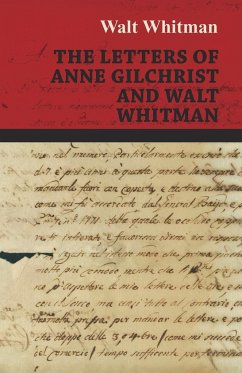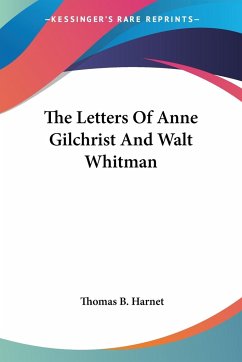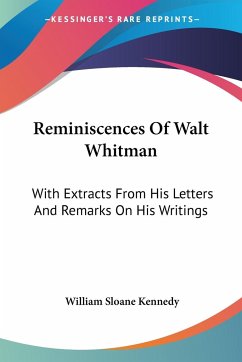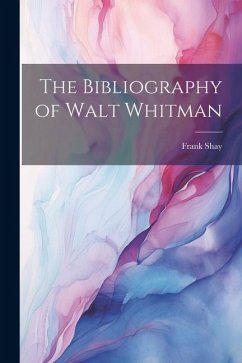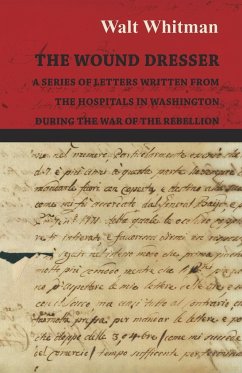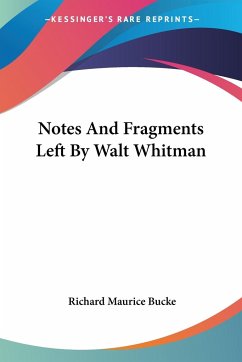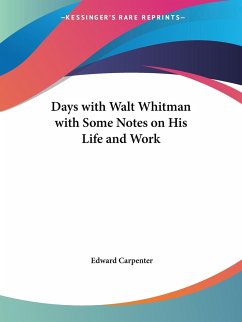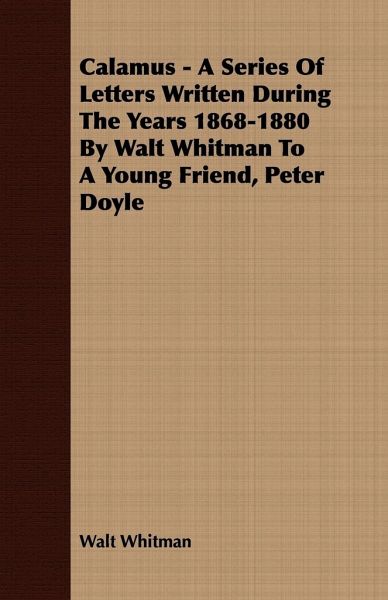
Calamus - A Series Of Letters Written During The Years 1868-1880 By Walt Whitman To A Young Friend, Peter Doyle
Versandkostenfrei!
Versandfertig in 1-2 Wochen
27,99 €
inkl. MwSt.

PAYBACK Punkte
14 °P sammeln!
Walter Whitman (1819 ¿ 1892) was an American essayist, poet, and journalist who was pivotal to the transition from transcendentalism to realism. His work was notably divisive and claimed by many to be obscene when first published, but he is now considered to be one of the most influential people in the American poetic canon and the ¿father of free verse¿. Whitman famously had a 27-year-long relationship with a streetcar conductor called Peter Doyle, who inspired some of Whitman's most beautiful and powerful works of verse. This volume contains a selection of letters between the two, punctua...
Walter Whitman (1819 ¿ 1892) was an American essayist, poet, and journalist who was pivotal to the transition from transcendentalism to realism. His work was notably divisive and claimed by many to be obscene when first published, but he is now considered to be one of the most influential people in the American poetic canon and the ¿father of free verse¿. Whitman famously had a 27-year-long relationship with a streetcar conductor called Peter Doyle, who inspired some of Whitman's most beautiful and powerful works of verse. This volume contains a selection of letters between the two, punctuated with some of Whitman's best poetry. Offering an earnest insight into his life, Whitman's ¿Calamus¿ is not to be missed by anyone with a love for his wonderful work and an interest in his personal life in particular. Other notable works by this author include: ¿Franklin Evans¿ (1842), ¿Life and Adventures of Jack Engle¿ (1852), and ¿Leaves of Grass¿ (1855). Many vintage books such as this are becoming increasingly scarce and expensive. We are republishing this volume now in an affordable, modern, high-quality edition complete with a specially commissioned new biography of the author.




